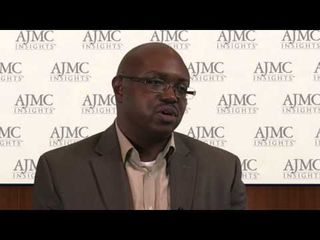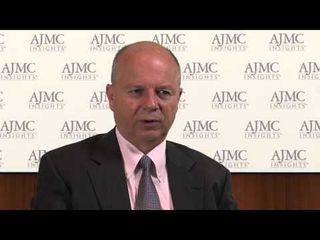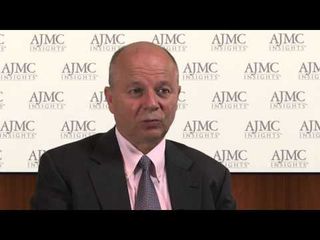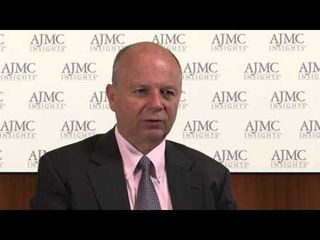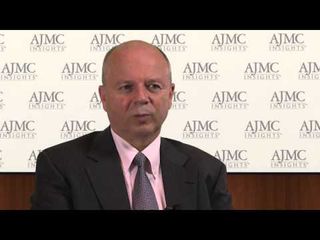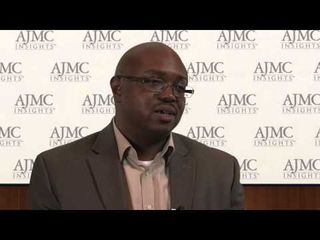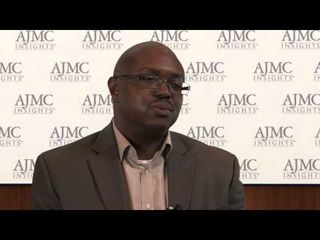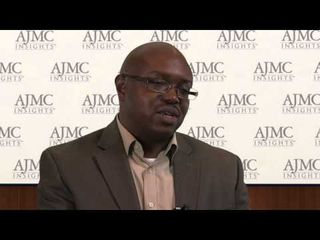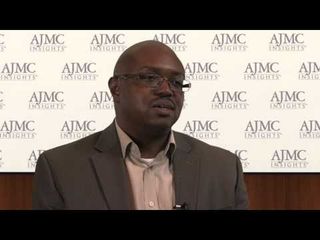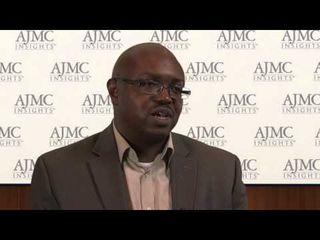
Oncology
Latest News
Latest Videos

CME Content
More News

An exhaustive analysis of over a 100,000 individuals has confirmed the absence of unbiased association between statin use and a person’s risk of colorectal cancer; however, an inverse relation of risk and cholesterol levels was identified.
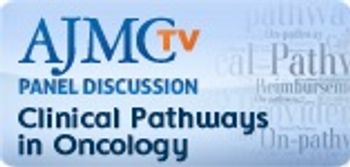
The American Journal of Managed Care convened an expert panel to discuss the development and utility of clinical pathways in oncology care.

Patients diagnosed with advanced renal cell carcinoma, who have received prior treatment with anti-angiogenic agents, now have the option of being treated with the small molecule inhibitor cabozantinib.


This week, the top stories in managed care included the news that UnitedHealth will be exiting most Obamacare exchanges in 2017, and coverage from both the annual meeting of the Academy of Managed Care Pharmacy and the Community Oncology Conference.

Cost, biosimilars, and technology dominated the conversations when managed care pharmacists, health plan administrators, physicians, and more gathered for the AMCP Managed Care & Specialty Pharmacy Annual Meeting in San Francisco, April 19-22, 2016.

Flatiron Health has announced the development of a cloud-based electronic health record and an analytics tool to support reporting requirements for those clinics that will be selected to participate in the Oncology Care Model.

According to Avalere Health, physicians who prescribe lower cost drugs would be reimbursed at a higher rate than those who use more expensive drugs, under the proposed Medicare Part B demo model.

What we're reading, April 21, 2016: Congress keeps things moving on the fight against the opioid epidemic; new paper from the National Bureau of Economic Research finds Medicaid expansion has a broader societal impact; and Novartis faces stiff competition from generic version of Gleevec.

AMCP Managed Care & Specialty Pharmacy Annual Meeting 2016 kicked off by delving into the near-term specialty pharmaceutical pipeline with Aimee Tharaldson, PharmD, senior clinical consultant of emerging therapies at Express Scripts.

The growth of clinical pathways in cancer care brings opportunities to improve quality and control cost, but there are frustrations, too. Physicians want to retain some freedom and are pushing back against the administrative jungle from multiple payers, according to a special issue of Evidence-Based Oncology, a publication of The American Journal of Managed Care.

An international study evaluating nivolumab in head and neck cancer has found that patients treated with the checkpoint inhibitor were twice as likely to be alive at 1 year after initiating treatment, compared with patients who were given standard chemotherapy.

Working closely with oncologists on value assessment frameworks can save money for the healthcare system while guaranteeing great outcomes for patients, Steve Miller, MD, senior vice president and chief medical officer of Express Scripts, said during a pre-meeting session of AMCP Managed Care & Specialty Pharmacy Annual Meeting 2016.
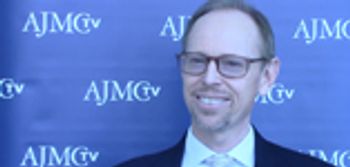
Steven D. Pearson, MD, president of the Institute for Clinical and Economic Review, discussed the specialty conditions that are having the biggest impact on overall healthcare expenditures and pharmaceutical spending.

The specialty pharmacy industry is unique in many ways, but the price growth for these drugs is no longer sustainable, Steve Miller, MD, senior vice president and chief medical officer of Express Scripts, said during a pre-meeting session of AMCP Managed Care & Specialty Pharmacy Annual Meeting 2016.

A study presented at the ongoing annual meeting of the American Association for Cancer Research has confirmed that 3 commercially available diagnostic tests that measure the expression of the programmed death ligand 1 protein in non-small cell lung cancer could be interchanged.

While clinical pathways can help standardize care, considering the multitude of options available for oncology care providers, there is significant push-back from providers as well.

A cost-economic analysis by researchers at the Yale School of Public Health has found that switching to Gardasil-9, which protects against 9 oncogenic serotypes of the human papillomavirus, would provide improved health benefits at the same or lower societal cost.

Evidence-Based Oncology invited a panel of experts who are experienced in the creation of oncology care pathways, use them in their practice, and have researched the development and implementation of care pathways, to exchange ideas on the topic.

Targeting cancer stem cells could have a much better impact on the outcome of patients with multiple myeloma being treated with standard chemotherapy, a new single-arm study by researchers at Johns Hopkins has found.

The top stories in managed care include a recap of Patient-Centered Diabetes Care, the case for the Oncology Medical Home, UnitedHealth leaves Affordable Care Act exchanges in 2 states, and CMS expands alternative payment model for primary care.

Despite the fundamental advances in cancer care technology and care delivery that have made these improvements possible, our delivery system remains quite inefficient and frequently falls short of being truly patient-centered. Is a system-based solution the answer?

The biggest challenge facing oncologists in 2016 is the Medicare Part B demonstration that CMS announced, Lucio Gordan, MD, of Florida Cancer Specialists, said at the Community Oncology Alliance's 2016 Community Oncology Conference.

Pharmaceutical industry experts provide an overview of the highly complex biosimilar development process at The Community Oncology Conference: Innovation in Cancer Care, held in Orlando, Florida.

An overview of the oncology clinical pathways development program at the UPMC CancerCenter and how it led to the creation of Via Oncology, a clinical pathways vendor.

